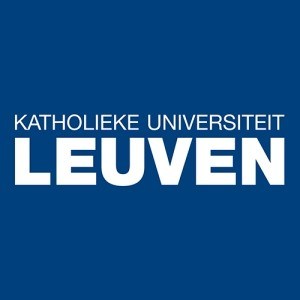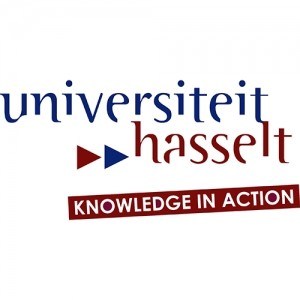Photos of university / #kuleuven
The Food Technology program at KU Leuven is a comprehensive and multidisciplinary course designed to prepare students for a dynamic career in the food industry. This program offers an in-depth understanding of the scientific principles underlying food production, processing, safety, and quality management. Students will explore various aspects of food chemistry, microbiology, engineering, and technology to develop innovative solutions for current challenges in food sustainability, nutrition, and health. The curriculum emphasizes practical skills through laboratory work, internships, and project-based learning, enabling students to apply theoretical knowledge in real-world contexts. Throughout the program, students acquire expertise in areas such as food product development, sensory analysis, quality assurance, and food safety management systems. The program also focuses on sustainable practices in food processing and the importance of bio-economy principles to promote environmentally friendly production methods. Graduates of the Food Technology program will be well-equipped to pursue careers in food manufacturing companies, research institutes, regulatory agencies, and consultancy firms. They will be capable of contributing to the development of healthier, safer, and more sustainable food products and processes. The multidisciplinary approach, combined with strong industry links and research opportunities, ensures that students are prepared to meet the evolving demands of the global food sector. With a commitment to innovation and quality, KU Leuven’s Food Technology program aims to cultivate highly qualified professionals who can lead advancements in food science and technology for a healthier future worldwide.
In Depth Education Segment
- Food Microbiology and Analysis
- Food Chemistry and Analysis
- Food Marketing and Consumer Behaviour
- Biochemistry and Physiology of Perishable Crops
- Nutrition and Dietetics
- Applied Statistics
- Food Processing
- Transport Phenomena and Engineering Kinetics
- Thermal Processing of Foods
- Engineering Properties and Principles of Food Machinery
Specialisation Segment
Students have to choose one major.
Major in Postharvest and Food Preservation Engineering (KU Leuven)
Each student who has chosen the "Major in Postharvest and Food Preservation Engineering" follows the three immediate courses. From the subgroup "Postharvest Courses", one course is chosen.
- Mathematical Planning and Advanced Statistics
- Low Temperature Processing of Foods
- Design and Management of Storage and Distribution Structures
Postharvest Courses
- HACCP-concepts and Quality Assurance Workshop
- Postharvest Pest Management and Disease Control
- Food Packaging and Transportation
Major in Food Science and Technology (UGent)
Each student who has chosen the "Major in Food Science and Technology" follows the three immediate courses. From the subgroup "Product Technology Courses", one course is chosen.
- Statistical Topics in Food Technology
- Food Colloids
- Functional Foods
Product Technology Courses
- Milk and Dairy Technology
- Technology of Fishery Products
- Plant Based Food Products and Ingredients
- Meat and Meat Products
Optional Courses Segment
Each student chooses 3 courses (maximum 14 credits) from the "Optional Courses Segment". A student can never follow a course twice.
A student can't take both "Management in the Bio-economy" (I0Q17A) and "Advanced Marketing and Agribusiness Management" (I0S15A - UGent)
A student can't take both "HACCP-concepts and Quality Assurance Workshop" (I0P88A) and "Food Safety" (I0T92A - UGent)
- Low Temperature Processing of Foods
- Postharvest Pest Management and Disease Control
- Food Colloids
- Milk and Dairy Technology
- Technology of Fishery Products
- Fruit and Vegetable Technology
- Food Safety
- Design and Management of Storage and Distribution Structures
- Functional Foods
- Plant Based Food Products and Ingredients
- Meat and Meat Products
- Cereal Science and Technology
- Food Fermentations
- Food Regulation: Workshop
- Workshop Food Technology
- Advanced Marketing and Agribusiness Management
Master's Thesis
Requirements
- International applicants must have obtained an academic Bachelor of Science degree (in developing countries typically a 4-year programme) in a discipline related to the content of the programme from a recognized University, College or Institute, with an end result of second class upper or equivalent. Each application will be evaluated by the IUPFOOD Educational Committee for admission.
- Applicants are fluent in English (written and oral). All applicants who have not obtained a previous diploma in a programme taught in English in Australia, English-speaking Canada, the Caribbean Islands, Ireland, New Zealand, South Africa, the United Kingdom and the United States of America must submit a certificate proving their proficiency in English. Applicants need to have obtained a score of at least 550 on the paper-based TOEFL test (or a score of at least 79 on the internet-based TOEFL test) (sent by ETS) or a score of at least 6.5 on the IELTS test (sent by the official IELTS centre administered by The British Council or IDP Education) or provide proof of an equivalent test.
- All applicants (EEA and non-EEA) will have to pay an application fee of 50 € to process their file.
- PDF scans of your diplomas and transcripts of academic records
- PDF scan of the translation of your diploma and official transcripts
- The PDF scans of the TOEFL or IELTS certificates have to be uploaded in the web application Applicant. The original TOEFL or IELTS certificates have to be sent directly by ETS or by the official IELTS test centre administered by The British Council or IDP Education to International Admissions and Mobility at KU Leuven. Alternatively, you can also request ETS or the British Council to make your test result available to KU Leuven online, so we can verify your result via the online verification tool.
- If you still have to take the test by the time you want to submit your application file, upload a proof of registration for the TOEFL or IELTS test in the meantime. The proof of registration should mention the date when you will be taking the test.
- PDF of the proof of payment of the application fee made either via bank transfer or via credit card
- PDF scan of the identity page of your passport
- PDF of your motivation letter (recommended size: one A4 page)
- PDF of your CV
The financing studies for the Food Technology bachelor's program at KU Leuven are primarily structured around various funding options available to both domestic and international students. The university offers a range of scholarships, grants, and financial aid programs designed to support students financially throughout their studies. Students can apply for government-funded scholarships, which are often based on academic merit or financial need, depending on the applicant's country of origin. Additionally, KU Leuven provides specific scholarships for international students, which are awarded based on academic excellence or specific criteria set by the university or external funding bodies.
Apart from scholarships, students might have access to student loans or other financial assistance programs available through national or regional authorities. The university also offers flexible payment plans that allow students to pay tuition fees in installments, easing the financial burden over the course of the program. For students who are employed or have part-time jobs, KU Leuven encourages combining work with studies, although employment policies and regulations should be carefully considered to balance work and academic commitments effectively.
Furthermore, students are advised to explore external funding opportunities, such as Erasmus+ grants for exchange students or partnerships with industry that may offer financial support or internships that include stipends. The university's dedicated financial aid office provides guidance and counselling to help students identify suitable funding sources and navigate the application processes. Overall, the financing studies of the Food Technology program at KU Leuven aim to make higher education accessible and affordable, ensuring that students from diverse backgrounds have the opportunity to pursue their academic and career goals without undue financial hardship.
Food Technology at KU Leuven is a comprehensive program designed to prepare students for a career in the food industry, focusing on the scientific and technological aspects of food production, processing, and safety. The curriculum covers a diverse range of topics including microbiology, chemistry, physics, engineering, and nutrition, providing students with a solid foundation in both the theoretical and practical aspects of food technology. Students learn about food quality assurance, product development, innovative processing techniques, and sustainability in the food sector. The program emphasizes practical laboratory work, internships, and project-based learning to ensure that graduates are well-equipped for the challenges of the food industry. KU Leuven's strong connections with industry partners offer students opportunities for internships and collaborative projects, facilitating a smooth transition into professional roles. The program also focuses on research and innovation, encouraging students to engage in scientific studies that can lead to innovations in food quality, safety, and sustainability. Graduates of the program can pursue careers in food production companies, quality control laboratories, research institutions, and regulatory agencies, among others. The program aims to develop not only technical expertise but also critical thinking, problem-solving skills, and an understanding of ethical and sustainability issues relevant to the food sector. With a multidisciplinary approach, students gain insight into the entire food chain from raw materials to consumer, ensuring they are prepared to address current and future challenges in food technology. The language of instruction is primarily English, attracting both local and international students, fostering a diverse learning environment. Overall, Food Technology at KU Leuven is designed to produce highly skilled professionals capable of innovating and improving the global food industry through scientific excellence and sustainable practices.



